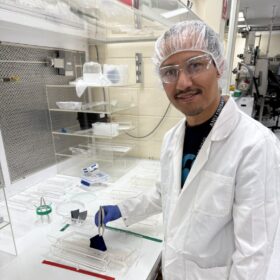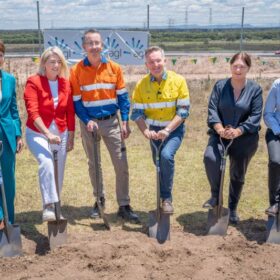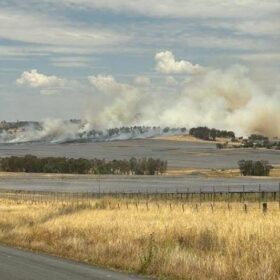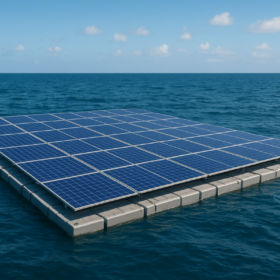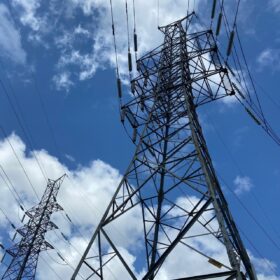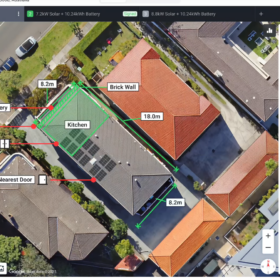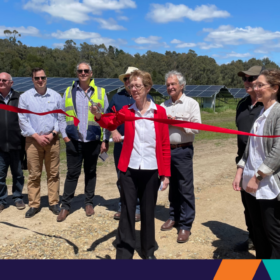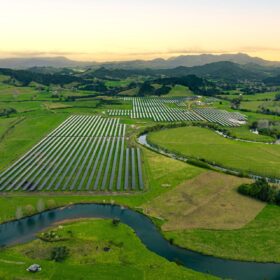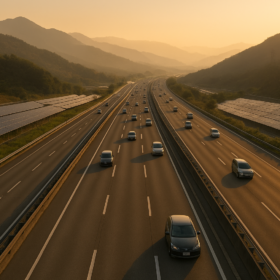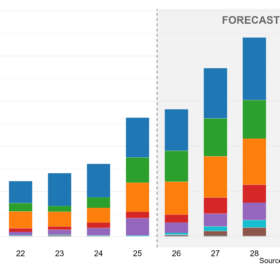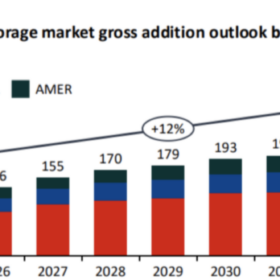ANU teams with Longi to explore doping options in solar wafer manufacturing
An international research team led by the Australian National University and Chinese module manufacturer Longi has investigated antimony-doped Czochralski-grown silicon ingots as an alternative to phosphorous-doped ingots in the manufacturing of PV wafers and has found they exhibit slightly higher mechanical strength.
AGL reaches milestone on 2 GWh Tomago battery
Energy utility AGL has commenced construction of the 500 MW / 2,000 MWh Tomago battery energy storage system in the New South Wales Hunter region with works expected to be completed in 2027.
Fire forces 400 MW solar farm offline
Fire forced the shutdown of the Wellington North Solar Farm in central western New South Wales at the weekend but officials expect the 400 MW facility to resume full operations “shortly.”
Research provides cost benchmarking for offshore floating solar
An international team of researchers led by engineering consultancy RINA Australia has completed a preliminary techno-economic study on the global potential for offshore floating PV. The results provide project cost benchmarking, country-specific economic assumptions, and a global assessment of offshore solar’s levelised cost of electricity.
Western Australia renewable energy generation delivers record on the SWIS
For the first time, renewable energy accounted for the majority of energy on Western Australia’s South West Interconnected System in November at 55.78%.
GreenSketch 3.0 fast tracks solar and battery install design and business
Australian solar distributor OSW Group has enhanced its free solar, battery design and installation business tool, GreenSketch version 3.0 with new AI-powered features, that simplify and accelerate workflows.
Salvation Army powers aid efforts with new agrivoltaic solar farm
The Salvation Army Australia has completed an agrivoltaic, and its first, solar farm near Melbourne, with the aim to reduce its carbon footprint while boosting its ability to help those most in need.
Lodestone generates first power from Pāmu Rā ki Whitianga solar farm
New Zealand solar-based gentailer Lodestone Energy has begun generating power at its fourth solar farm located on the North Island in a further step toward achieving the company’s vision of ‘a solar farm in every community’.
Japan launches call for road-surface solar technologies
Japan’s Ministry of Land, Infrastructure, Transport and Tourism has started accepting submissions for new road-surface PV technologies, with field verification planned in pedestrian areas at roadside stations to test performance and electricity use ahead of societal implementation.
FY2029 renewable energy construction spending to peak at $23 billion: report
New industry forecasting company Macromonitor analysis has found renewable energy construction tripled since 2021 and is on track to increase to a peak level of $23 billion in FY2029.
